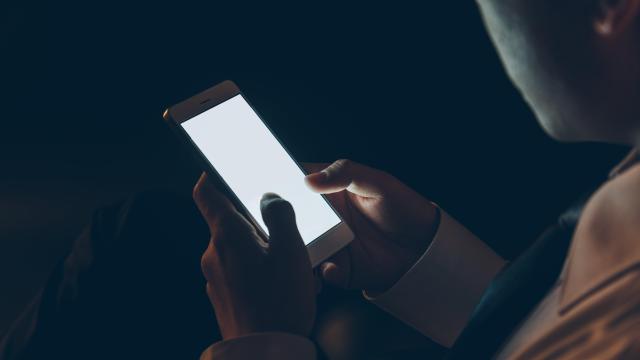A new study this week suggests that long-term exposure to blue light may not be so harmless, at least for fruit flies. Researchers found that chronic blue light exposure prematurely aged the flies and damaged their brains, likely due to certain metabolic changes. But it’s not known whether blue light could cause similar harm in humans, and the exposure people get from phone screens and indoor lighting isn’t likely to be worse than the blue light naturally present in sunshine.
The research comes from a team of scientists at Oregon State University, who have been studying the effects of blue light on the common fruit fly (Drosophila melanogaster) for several years now. Their past work has indicated that blue light can speed up the ageing process in these short-lived insects (in optimal conditions, they live up to 50 days) and even cause neurological damage. In their latest work, published Wednesday in the journal Frontiers in Ageing, the team wanted to get a better understanding of why these effects seem to happen.
To do this, they compared two groups of fruit flies: one that had been left under constant blue light for 10 or 14 days, and the other that had been kept in complete darkness instead. They specifically focused on the metabolism of both fly groups, or how the insects broke down nutrients and other molecules for energy. The blue light flies once again showed signs of premature ageing and neurodegeneration. And when compared to the control group, the flies also had noticeably different levels of these metabolic byproducts, as well as lower levels of important neurotransmitters.
“Our research, which was performed on fruit flies, suggests that long-time exposure to blue light results in reduced energy production and this is detrimental to cellular health. This conclusion is based on experiments showing that blue light can alter the levels of indispensable metabolites in flies,” senior study author Jadwiga Giebultowicz, a professor at OSU’s Department of Integrative Biology, told Gizmodo in an email.
Blue light is one of the shortest wavelengths of light on the visible spectrum, meaning that it’s relatively high energy. For some time, it’s been suspected that blue light from our phones and other devices as well LED lighting could be harmful to human health, particularly our eyes. These concerns have also led to a sort of cottage industry of products claiming to protect people from the pervasive harms of blue light, such as specialised goggles or skin care products, though not always with great success.
One important factor here is that the most potent source of blue light is actually natural daylight. And many experts believe that if blue light can be harmful to our cells, that harm is likely to come much more from the Sun — which also contains damaging ultraviolet light — than from much weaker artificial sources of blue light.
Animal studies like the current one have shown that high and/or chronic doses of blue light can damage cells, including those in the retina, but research in humans so far hasn’t shown a similar effect from the light we get specifically from our phones.
There is a stronger case for blue light mucking with our bodily clock, since it plays a noticeable role in regulating our production of the hormone melatonin. Too much blue light at night seems to suppress melatonin production, making it harder to fall asleep, and poor sleep can then lead to poor health. Even this hypothesis is controversial, though, with a 2019 study in mice suggesting that any bright light in general, not specifically blue light, can ruin our sleep (the study also suggested that yellow light may actually be worse than blue).
Giebultowicz does note that most people aren’t spending their entire work days out in the Sun, but they are usually sitting under artificial sources of mostly blue light. So it is still possible that our blue light-rich environment in these modern times is having a uniquely negative effect on our health. The team suspects that some of the same damaging metabolic changes they saw in fruit flies exposed to chronic blue light can happen in humans, but Giebultowicz says that these changes could be more subtle.
In any case, it will take more research — particularly in humans — to suss out if and just how bad blue light is for us. For their part, the researchers do plan to keep digging.
“We are investigating the effects of blue light on gene expression in flies and hope to collaborate with other researchers to study the impact of blue light on human cells,” Giebultowicz said.
More: Do You Really Need a Sunscreen With Blue Light Protection?
